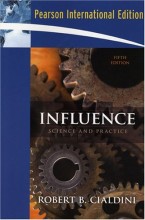Fatigue - Fatigue in multiple sclerosis: Mechanisms, evaluation, and treatment. Sleep
13 important questions on Fatigue - Fatigue in multiple sclerosis: Mechanisms, evaluation, and treatment. Sleep
What is the main imairment in QoL for MS?
- Fatigue
- Is reported by 75% of patients at some point.
- Fatigue may even surpass pain or physical disability as most debilitating symptom in some, and imposes socioeconomic consequences like loss of work hours and loss of employment.
What are the cytokine influences?
- Cytokines are strong mediators of fatigue
- interferon-y and TNF-a are hightened in fatigued ms patients compared to non-fatigued ms patients
- Are not straightforward targets. TNF-a antagonists reduce sleepiness in patients with sleep apnea, but worsen fatigue in ms.
- Cytokines are non-specific, and may vary due to inflammatory conditions.
What are endocrine influences?
- HPA axis and DHEA were studied in autoimmune diseases in which fatigue is a common symptom.
- Low cortisol and low DHEA have been implicated in fatigue.
- Conflicting results when examining ACTH
- Lower levels of DHEA and DHEAS in fatigued MS patients
- Fatigued MS patients gain more energy after using corticosteroids supports a possible hormonal influence
- Higher grades + faster learning
- Never study anything twice
- 100% sure, 100% understanding
What is axonal loss and altered cerebral activation?
- Decreased glucose metabolism in FC and basal ganglia suggests neuronal dysfunction.
- reductions in NAA/Cr ratio in multiple brain regions in fatigued MS patients.
- increased volumes and patterns of activation in the cingulate gyri and the left primary sensory cortex in fatigued MS patients compared to non-fatigued MS patients
What are the secondary mechanism in fatigue?
- Sleep disorders
- Restless leg syndrome
- sleep disordered breathing
- chronic insomnia and circadian rhythm abnormalities.
- depression
- MS subtype and disabilities.
- Latrogenic mechanisms.
What is restless leg syndrome?
- affects 10% of general population
- idiopathic or secondary to another medical cause
- prevalence is 3-5 times higher in MS patients.
- possible cause is damage to the "dopaminergic diencephalospinal and reticulospinal" pathways in the spinal cord. may decrease sensory threshold and increase susceptibility to RLS
What is sleep disordered breathing?
- brain lesions may lead to sleep apnea (Ondine's curse)
- May be a high prevalence in MS patients, but conflicting results.
What is chronic insomnia and circadian rhythm abnormalities?
- Frequency of sleep disturbances is increased in patients with MS
- MS patients have a increased frequency of delayed sleep onset.
- Fatigue in MS patients may in part be caused by a disturbed circadian rhythm
- MS patients had disturbed sleep paterns and more RLS
- fatigued MS patients had a higher arousal level.
- More disrupted sleep in fatigued MS patients.
MS subtype and disability?
- subtype and severity can affect the risk of fatigue.
- fatigue may be more severe in patients with progressive subtypes of MS
What fatigue rating scales are there?
- The chalder fatigue scale
- krupp's fatigue severity scale
- the modified fatigue impact scale
The chalder fatigue scale
- 14 items
- physical and mental domains
- likert scale
- short
- MS-specific validity is lacking
Krupp's fatigue severity scale (FSS)
- 9 questions
- 7-point likert scale
- differentiate between subgroups of patients with ms, CFS (chronic fatigue syndrome), and depression
- score correlates with other MS scales
Modified fatigue impact scale (MFIS)
- 21 items
- multidimensional assessment:
- Physical
- cognitive
- Psychosocial functioning - Ease of use, and good reproducibility
The question on the page originate from the summary of the following study material:
- A unique study and practice tool
- Never study anything twice again
- Get the grades you hope for
- 100% sure, 100% understanding






























